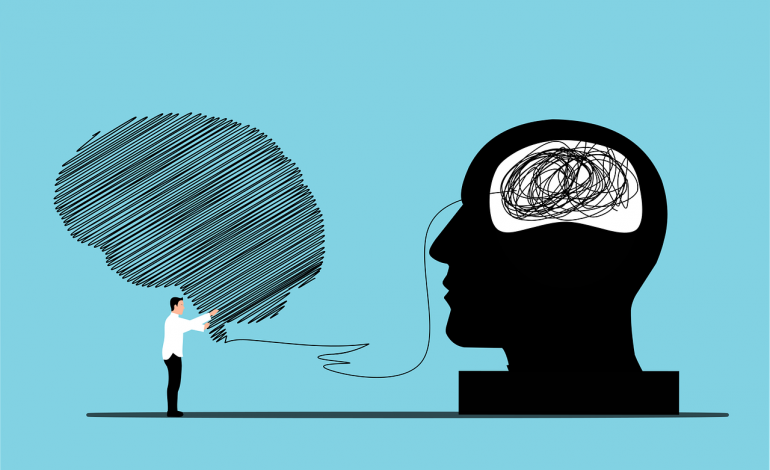Can you imagine school without listening? I can’t. That is why, today, I’d like to persuade you that listening, along with other soft skills, is really important in education and personal life, as well.
In school, we spend a lot of time learning to read and write, so much that it is considered our special talent. It is amazing how important it is for us to be able to listen and speak.

Listening is one of the facets of speaking which cannot be overlooked. So why does it receive a secondary treatment in many schools? That’s because it’s not just about reading and writing, but a lot more. With the advancement of technology, gadgets like podcasting have emerged as the most favored medium of listening by people.
To become a good listener, one must be calm and quiet inside and pursue the other person’s course of action. Listening is more of a mental process and it’s all about making the other person feel comfortable, not judged or criticized. Listening requires all the senses together in order to understand what the person is trying to convey.
Listening Skills Make Better Learners
Listening is a skill like any other, and as such, it requires practice to develop. Both listening and speaking are natural human behaviors; however, we need to acquire the necessary skills to listen and speak effectively.

Listening development depends on maturation and experience. The brain is not completely developed until early adulthood; this does not mean that children cannot or do not learn how to listen well. However, one must be informed of the fact that younger children have less cognitive capacity than adults, so they must receive more help with listening than adults do if they are to develop effective listening skills.
Listening is a Critical Skill for Success at School and in Life
We all know good listeners are rare, so if you can improve your listening skills, you’ll stand head and shoulders above others. Listening is a critical skill for success at school and in life. You may be a good listener already, but if you can become even better, it will help you out tremendously in the long run. For example, students who are good listeners are more likely to succeed in their studies and exams. They retain information better than those who don’t listen well because they hear the details during lectures and discussions instead of daydreaming or getting distracted by other things.

Being a good listener will also help you get along with your teachers, parents, and friends. It’s difficult to have healthy relationships when someone doesn’t listen to what others say because it makes them feel frustrated over not being heard or understood. If your parents tell you something important but they seem like they’re talking to themselves every time they speak with you, they’re going to get tired of trying after a while unless something changes on your side.
The Ability to Listen is Essential for Successful Collaboration
- Education professionals argue that listening is an important part of a collaborative effort and facilitates a positive relationship between teachers, students, and parents.
- It is difficult to build trust and understanding among team members when people do not listen to one another. Instead of striving for success, learners have often focused on convincing others that their ideas are the best ones.
- The ability to listen can lead to better communication in both personal and professional life. Listening skills are required at school, at home, in the workplace, and out in public.
- Teachers should improve their listening skills so they can interact more effectively with students, peers, parents, and administrators. Likewise, students need to be able to focus on what other people have to say rather than being self-absorbed and only concerned about themselves.
Helping Students Improve Their Listening Skills
The first step to helping students improve their listening skills is to focus on improving their attention span. Instructors can help students retain more of what they hear by encouraging them to pay attention by using techniques such as:
- Using humor and interesting facts, for example, during a lesson on history you could share a little-known fact about the subject.
- Using engaging examples. Providing anecdotes that show how a concept is used in real life helps students learn and understand concepts better.
- Assigning individual or group projects that require research help reinforce concepts taught in class and promote better listening skills.
The key is to use a variety of teaching styles, activities, and exercises to help keep students engaged and interested in the material being taught.
Listening Means Paying Attention
Listening means paying attention. In order for you to learn anything, you must pay attention to the speaker. That’s why listening is such an important part of learning; if you don’t listen carefully, you won’t fully understand what the speaker is trying to tell or teach you.
If your focus wanes and your mind wanders, it will be very hard for you to follow along with what is being said. You can also improve your listening skills by being an active listener.
Active listening requires having a conversation with someone who has different viewpoints on a subject than yours and forming responses based on their statements and questions. In addition, active listening entails asking questions throughout the discussion that pertain directly to what was just said in order for each side of the argument or debate to gain clarity on what they are conveying.
Listening Skills Improve Language Acquisition
Listening to a language is a great way to acquire it. This is true of second language acquisition, such as learning French in elementary school or Spanish in college, but also first language acquisition. In fact, the importance of listening for language acquisition can’t be overestimated.

Listening helps with pronunciation and with understanding the correct way to speak. It helps build vocabulary. It helps understand the structure of the language (word order, sentence structure).
It also gives you an understanding of culture. Without listening, how could you understand songs? Know what’s going on in the world? Learn about other people’s experiences?
*Q: Why are listening skills crucial for students?*
A: Listening skills play a pivotal role in learning and academic performance. They go beyond reading and writing, forming the foundation for language development. Improved listening leads to better comprehension, retention, and critical thinking, essential for effective communication in personal and professional life.
*Q: How can students enhance their listening skills?*
A: To boost listening skills, students can cultivate the habit of reading regularly. Active listening, involving focused attention and engagement, is another effective practice. Additionally, participating in bottom-up listening activities aids in skill development. Exploring movies and podcasts featuring native speakers can provide valuable exposure.
*Q: Is there a recommended approach to developing listening comprehension?*
A: Yes, it’s crucial to recognize that enhancing listening comprehension is an unconscious process that evolves over time with practice. Students should allocate dedicated time to listening activities for sustained improvement.
*Q: Are there specific strategies recommended by experts?*
A: Expert advice suggests various strategies. These include reading advice from language learning communities [2], engaging in active listening techniques [4], and exploring the science behind improving listening skills [9]. The collective wisdom from these sources can offer a holistic approach.
*Q: How can exposure to native speakers be beneficial?*
A: Exposure to native speakers through movies and podcasts serves as an immersive experience, helping students adapt to different accents, tones, and conversational nuances. This exposure contributes significantly to developing a more intuitive understanding of the language.
*Q: Is there a shortcut to mastering listening skills?*
A: No, developing listening skills is a gradual process that demands time and consistent effort. While there are no shortcuts, a combination of reading, active listening, and exposure to native speakers accelerates the learning curve.
*Q: Are there practical tips for students struggling with listening skills?*
A: Practical tips abound, ranging from understanding the science behind improvement [9] to seeking advice from those who have overcome challenges [22]. Implementing practical suggestions can make the learning journey more effective and enjoyable.
Conclusion
The importance of listening skills in education is often undervalued. The development of the ability to listen is distinct from both reading and writing abilities. It is through listening that we begin to develop a unique understanding of a language, the spoken nuances, and rhythm, which forms the basis for the ability to read and write.
Listening is up there with speech and communication, reading, and writing. If you have good listening skills, you will be able to listen effectively to instructions in class and get help from your teachers/professors easily, which makes you a more successful student overall.


